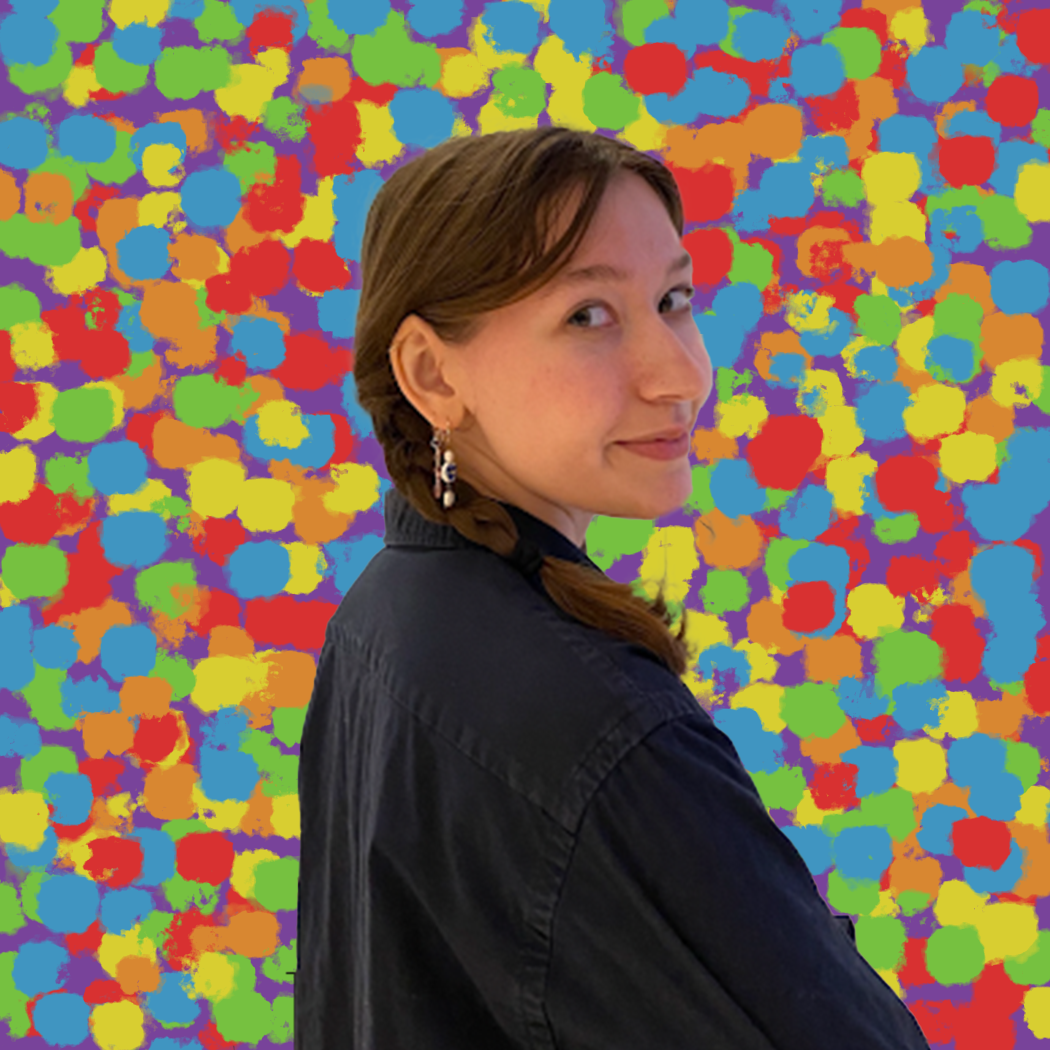When Northwestern’s Spectrum Theatre Company asked students to apply to write its 2023 Project NU play, an annual production based on student interviews, Weinberg fourth-year Kara Kowalski suggested producing a show about queer women’s experiences with dating apps on Northwestern’s campus. Spectrum swiped right on the 21-year-old Creative Writing major, naming her head writer, and she’s taken the lead on crafting a lively story.
You can catch the show Friday, May 12 at 7 p.m. and 10 p.m. and Saturday, May 13 at 2 p.m. and 7 p.m. at Shanley Pavilion.

The show is about queer women’s relationships with dating apps. Why did you decide to pitch that theme for the project?
In a very basic sense, I'm a queer woman and I've been on dating apps. So there’s the personal aspect to it. When I was talking to Nathan [Hiykel, Communication second-year], who's directing the piece, we were on the same page about wanting to create a fun show. Even though there are definitely a lot of serious themes and topics that we touch on, we just want it to be fun. And what's more fun than having people tell us their worst date stories and getting to write funny scenes based on all those anecdotes? It’s almost like a piece that feels like you're sitting around gossiping with your friends after a date – that's the vibe we wanted to go for.
What did the interviewing process look like?
It ended up being like a lot of people. All our interviews are anonymous. As for how they show up in the piece, no character is based on one person. They're a melding together of information that we've gotten from the interviews.
But yeah, we did some cold emailing to professors. We had people fill out a survey that had a wide range of questions about dating, what dating apps they use, things like that. At the end, we had, “If you'd be interested in being reached out to about your answers, leave your email here.”
How is the writing team parsing through those interviews to create a cohesive show?
We transcribed all the interviews and then, based on the people that we talked to, we had a couple ideas of the types of characters we wanted to include. We started sectioning off the interviews into, “This sounds like this character would say that” [or,] “This sounds like that character would say that.”
We decided pretty early on that the structure of the show was going to be an interview. Essentially, [there’s] this professor. Her name is Sandra. She's doing a research study about queer women at Northwestern and dating apps. Through the interviews with these three main characters, there are little pop-out scenes or vignettes, where they start talking about an anecdote. Then we actually see it happen.
Do you have any particularly memorable anecdotes from dating at NU?
I've had pretty good dating app experiences. I met my boyfriend on a dating app. I think the hardest part – and this was something that came up a lot in the interviews – is that it's so hard to get from the apps to in person. The motivation to actually meet up with someone is basically non-existent. They're not fake, but they're not really real, because it's all online.
In what ways does your own identity impact your relationship with the project?
One of our characters, throughout the course of the play, she's in a relationship with a man. But she's bi and they decide to have an open relationship so that she can explore her sexuality. I connect with that character, because I wasn't too positive about my sexuality in high school. Being bi, there's this perception that if you're dating a man then you're not really bi, or you're just experimenting, especially for women. I'm happy we're representing an experience that lives in and celebrates ambiguity in relationships.
How do you want audiences to walk away from the show?
I want them to walk away from the show happy. Bottom line is that yeah, questions around sexuality and identity, and queer love are important but it doesn't need to be heavy all the time. Having a show with a lot of levity in it is important. I just want them to feel empowered to explore their own sexuality and feel more confident expressing that. Maybe that was too much to ask from an audience, but here's hoping right?
Editor’s note: This interview has been edited and condensed for clarity.